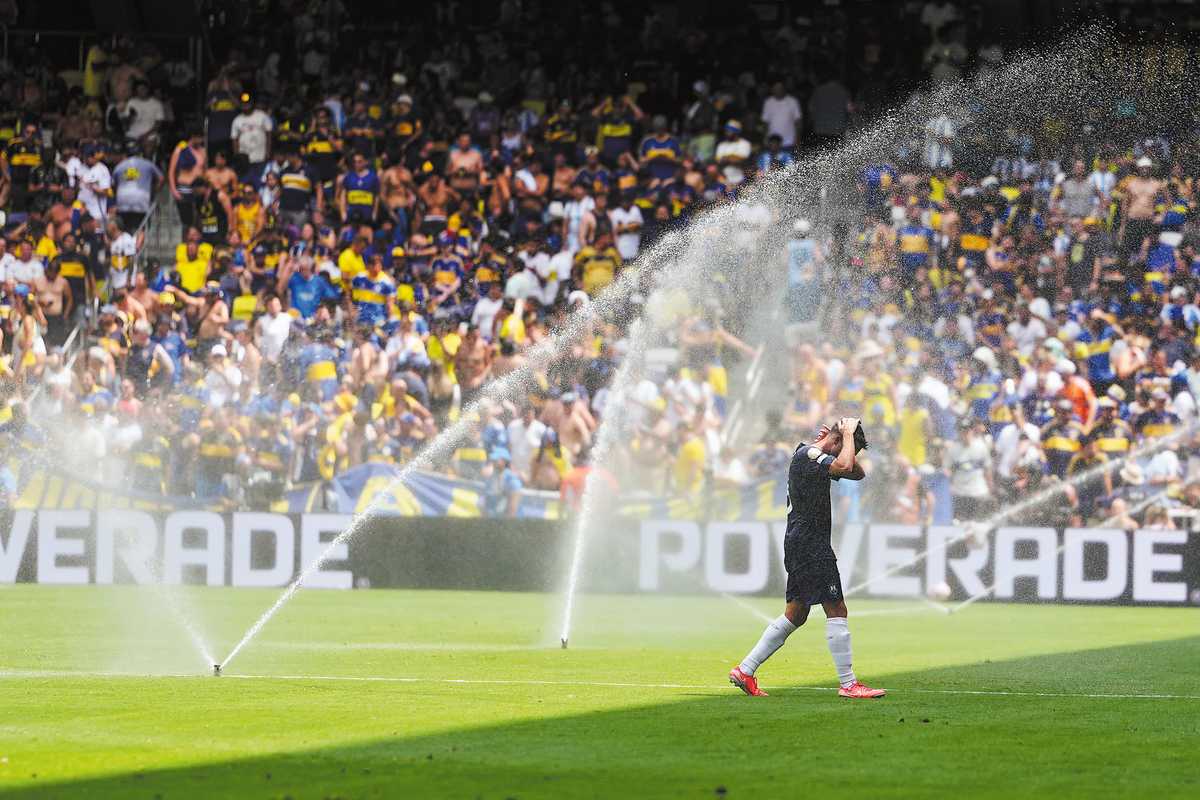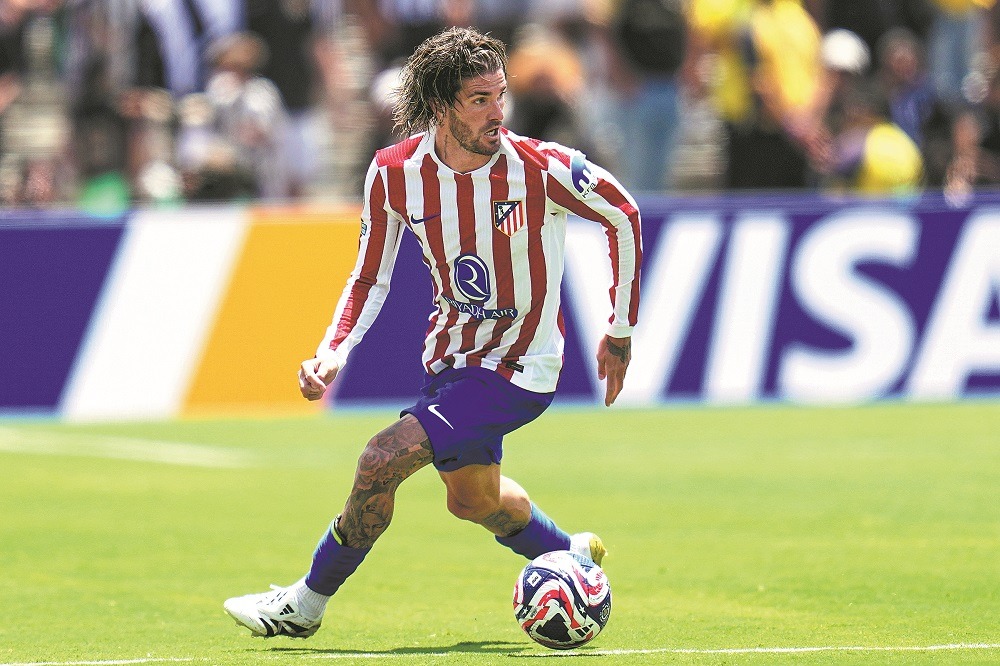Climate change challenge becomes hot topic for FIFA
Weather disruption at the recent Club World Cup could force a rethink of future tournament schedule


GENEVA — Soccer had a fierce reckoning with heat at the recently concluded FIFA Club World Cup in the United States — a sweltering preview of what players and fans may face when the United States co-hosts the World Cup with Mexico and Canada next summer.
With temperatures rising worldwide, scientists warn that staging the World Cup and other soccer tournaments in the Northern Hemisphere summer is getting increasingly dangerous for both players and spectators. Some suggest that FIFA may have to consider adjusting the soccer calendar to reduce the risk of heat-related illnesses.
"The deeper we go into the decade, the greater the risk without considering more dramatic measures, such as playing in the winter months and/or cooler latitudes," said Professor Piers Forster, director of the Priestley Centre for Climate Futures in Leeds, England. "I'm getting increasingly worried that we are only one heatwave away from a sporting tragedy, and I would like to see governing bodies lean into the climate and health science."
Tournament soccer in June and July is a tradition going back to the first World Cup in 1930.
Since then, the three-month period of June, July and August globally has warmed by 1.05 C (1.89 degrees Fahrenheit), according to the US National Oceanic and Atmospheric Administration. Meanwhile, European summer temperatures have increased by 1.81 C. The rate of warming has accelerated since the 1990's.
Climate scientists say that's a factor that needs to be considered when playing high-intensity outdoor sports like soccer.
"If you want to play football for 10 hours a day, they'll have to be the hours of the early morning and late evening," climatologist Friederike Otto from Imperial College, London, told reporters, "if you don't want to have players and fans die from heatstroke or get severely ill with heat exhaustion."
Forced to adapt
Extreme heat and thunderstorms took a toll on FIFA's newly expanded Club World Cup.
The tournament was held across 11 American cities from June 14 to July 13.
FIFA adapted by tweaking its extreme heat protocol to include extra breaks in play, more pitchside water, and cooling the team benches with air fans and more shade.
Still, Chelsea midfielder Enzo Fernandez said the heat made him dizzy, and urged FIFA to avoid afternoon kickoffs at the World Cup next year.
The global soccer players union, FIFPRO, has warned that six of the 16 World Cup cities next year are at "extremely high risk" for heat stress.
FIFA President Gianni Infantino addressed the heat concerns on Saturday, saying the handful of World Cup stadiums that are covered would be used for daytime games next year.
Extreme heat could become an even bigger challenge at the following World Cup in 2030, which will be co-hosted by Spain, Portugal and Morocco. Games are scheduled to be played in afternoons and early evenings from mid-June to mid-July. All three countries have already seen temperatures rise above 40 C this summer.
FIFA downplayed the heat risk in its in-house evaluation of the 2030 World Cup bid, saying "weather conditions are difficult to predict with the current development in global and local climate, but are unlikely to affect the health of players or other participants".
Heat exhaustion
The physical effects of playing 90 minutes of soccer in direct sunshine during the hottest part of the day can be severe and potentially result in hyperthermia — abnormally high body temperatures.
"When players experience hyperthermia, they also experience an increase in cardiovascular strain," said Julien Periard of the University of Canberra.
"If core temperature increases excessively, exertional heat illness can occur," leading to muscle cramping, heat exhaustion, and even life-threatening heat stroke, he said.
Many sports events held in the summer adjust their start times to early morning or late night to minimize the risk of heat-related illness, including marathons at the Olympics or track world championships. Morning kickoffs, however, are rare in soccer, where World Cup match schedules are often set with European TV audiences in mind.
It would be hard for FIFA to avoid daytime World Cup kickoffs given the packed match schedule, as the number of participating teams increases from 32 to 48 in 2026.
Calendar rethink
Heat mainly becomes an issue when the World Cup is held in the Northern Hemisphere, because June and July are winter months in the Southern Hemisphere.
FIFA has broken with its traditional June-July schedule for the men's World Cup just once, in 2022, when it moved the tournament to November-December to avoid the summer heat in Qatar.
Something similar is expected to happen when neighboring Saudi Arabia hosts the 2034 tournament.
However, moving the World Cup to another part of the year is complicated, because it means Europe's powerful soccer leagues must interrupt their season, affecting both domestic leagues and the Champions League.
FIFA didn't respond to questions from reporters about whether alternate dates for the 2030 and 2034 World Cups were being considered.
When and where to schedule the World Cup, and other outdoor sports events, is likely to become more pressing as the world continues to warm up.
Athletes, and even normal people doing basic physical activities, are now exposed to 28 percent more of a moderate or higher heat risk in 2023 than they were in the 1990s, said Ollie Jay, a professor at the University of Sydney who has helped shape policy for the Australian Open in tennis.
"This is symbolic of something bigger," said Michael Mann, a University of Pennsylvania climate scientist. "Not just the danger and inconvenience to fans and players, but the fundamentally disruptive nature of climate change when it comes to our current way of life."
Associated Press
Most Popular
- Climate change challenge becomes hot topic for FIFA
- China cut down to size by Japan's pacey run-and-gun game
- 60-second overview of the sniper competition
- South African sniper takes on his first 'Quick Sniping' challenge
- Shanghai to debut new track for 2025 FIM Motocross World Championship
- De Paul set to join Messi at Inter Miami






























